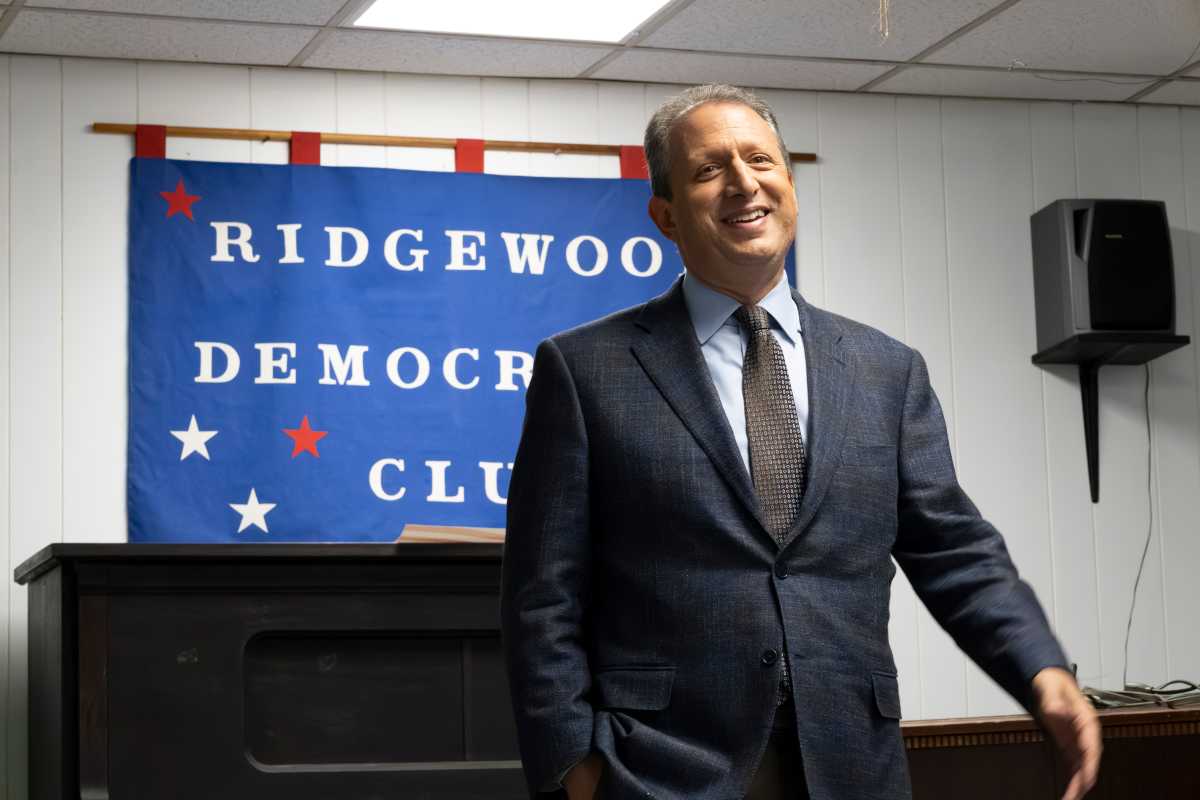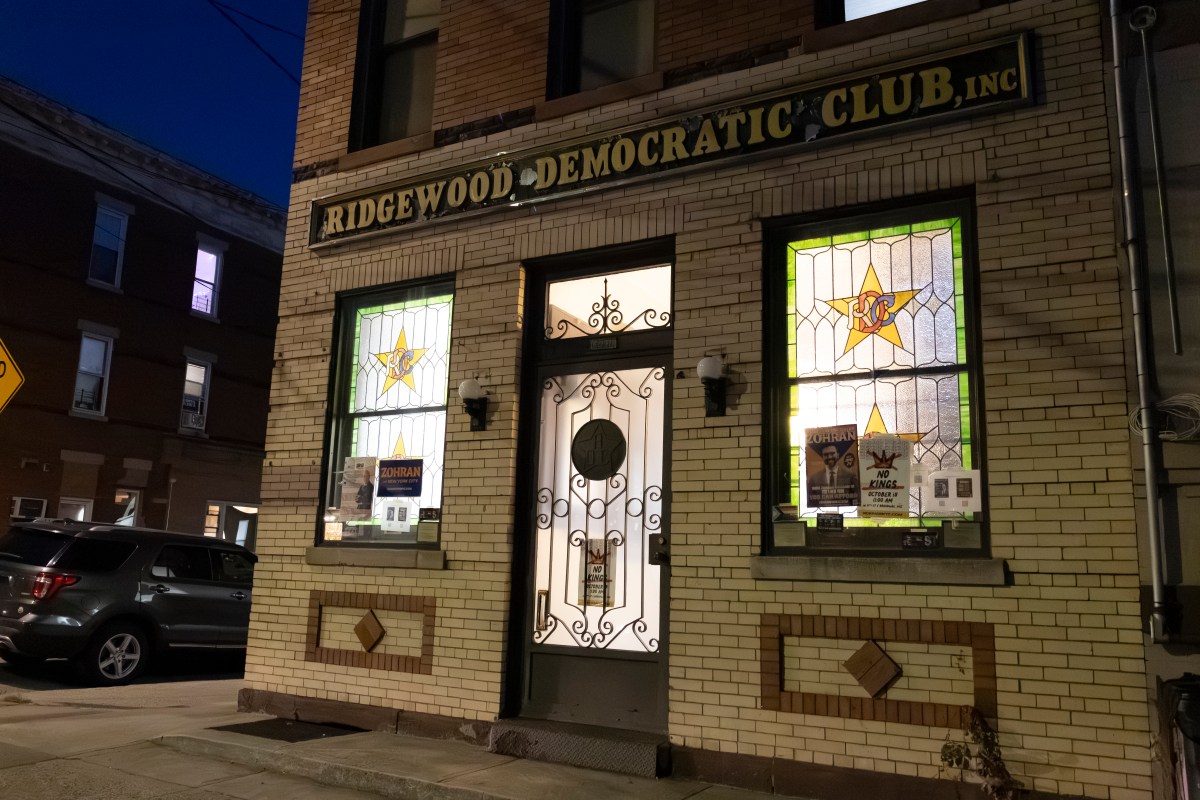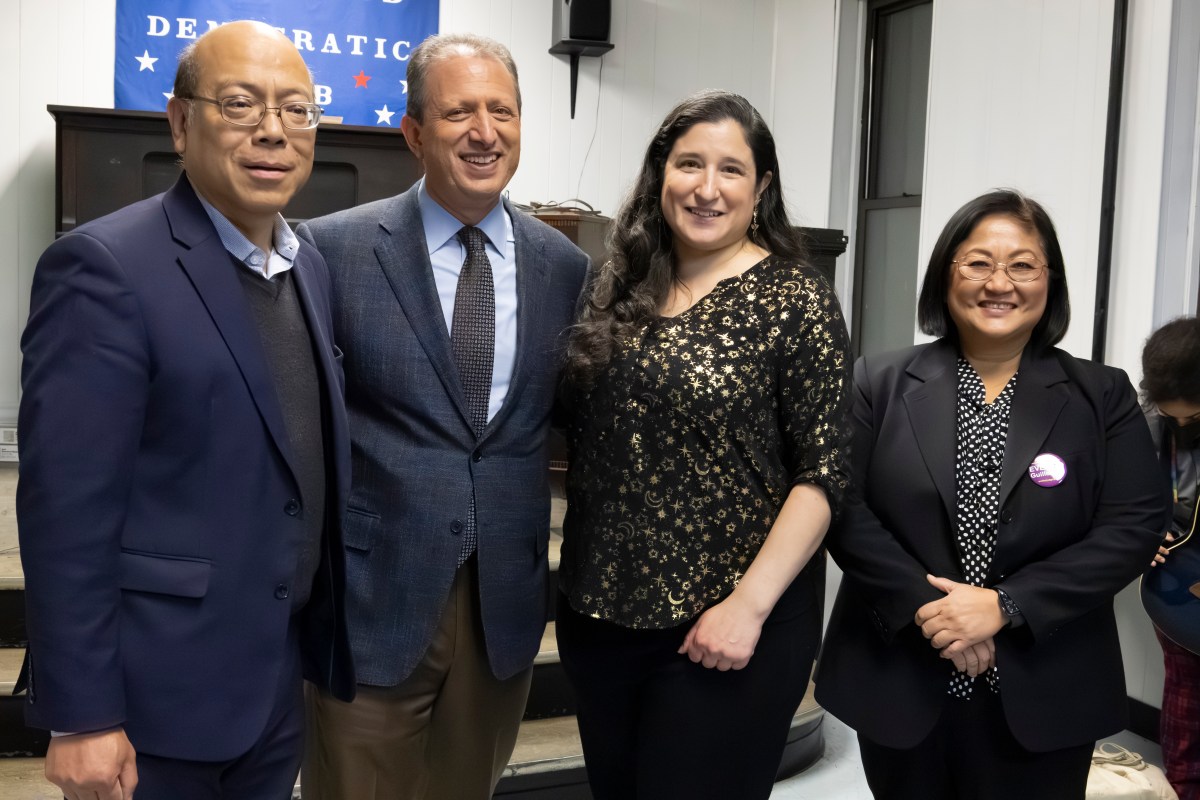
City Comptroller Brad Lander addresses the crowd at the Ridgewood Democratic Club
Photo by Patrick Stachniak
City Comptroller Brad Lander visited the Ridgewood Democratic Club last Friday to speak on his support for candidate Zohran Mamdani, the ballot proposals and answer questions, but was interrupted by a group of Climate Change activists during the early voting rally.
The rally also featured Democratic City Council candidate Phil Wong and Civil Court Judge candidate Eve Cho Guillergan, Esq., who spoke to their potential constituents briefly about their platforms, work within the community and personal history living in Queens. Lander arrived late after speaking to a politics class at Queens College, but was greeted by applause from the crowd and shouts from the protestors, who in turn received jeers after they interrupted Lander when he first took to the stage.
“There is an opportunity to ask questions at the end, I did not appreciate them yelling over him,” said Ridgewood Democratic Club President Janet Westcott on the interruption. “You’re welcome to ask your questions and to have a conversation, but shouting over someone is not productive: we can’t hear each other when it happens.”
Lander gained political steam during his campaign for mayor in the Democratic primary, where he came in third, but most notably after he was arrested twice while protesting ICE detentions: once at a court-house and the second outside an ICE facility in downtown Manhattan along with several other representatives. Several attendees thanked Lander for his work protesting ICE before asking their questions.
“I’ve been revolting all my life,” said Ernie Searle, a former Ridgewood resident and Democratic Club member, who came to hear Lander speak. “Back in the 1950s during the civil rights movement… and in the 1960s I was a conscientious non-registrant. I’ve met Brad several times, I really like him.”
During his speech, Lander acknowledged the Club and its over 100-year -long history since being founded in 1908.
“I see the organizing work that you are doing, and it’s encouraging to see democratic club work that is bridge-building,” Lander said. “I’m a proud progressive Democrat and I want a Democratic Party that can fight along its lines of difference. We’re going to have to build a party that elects front-liners and progressives and find ways to put that together.”
 Photo by Patrick Stachniak
Photo by Patrick Stachniak
Lander spoke on the importance of building more affordable housing, and supported the three ballot propositions dedicated to streamlining the process.
“I understand the impulse to have community input and more comprehensive planning,” Lander said. “But right now we are in a dire housing crisis. I wish there was more comprehensive planning to address infrastructure issues, but if we vote no on these proposals, we’re not going to get more infrastructure, just less housing.”
Proposition four is the most contentious, and would create the Affordable Housing Appeals Board made up of the local Borough President, Speaker of the City Council and Mayor. The board could overturn a City Council decision rejecting an affordable housing project by a 2-1 vote. However, Lander stated that vote would not be made “lightly” and only used in special circumstances.
Affordable housing qualifications are based on average median income (AMI) of each neighborhood. However, AMI is volatile, as it changes yearly depending on the influx of new residents or departure of old ones, meaning those near the end of affordable housing brackets could not be eligible for the same residence despite no change to their income. But Lander believes the most pressing issue is building enough housing to supply every single income bracket.
During the Q&A, Lander first addressed the protestors in attendance. The protestors took issue with Lander’s actions as city comptroller, claiming he was not doing enough to divest the city’s $300 billion pension funds and private equity from “polluting” companies like BlackRock.
“Under my leadership, we’ve taken the boldest climate [change] action by far,” Lander said. “We have already divested $4 billion, the biggest divestment from fossil fuels in the history of the U.S. We’re the only public pension fund in the country that excludes upstream fossil fuel investments from our private equity infrastructure.”
Upstream fossil fuel infrastructure refers to drilling, fracking or mining operations. The plan is a part of the state’s Climate Act to be net-zero by 2040, and Lander says the office is one year “ahead of schedule” after reducing publicly funded emissions by 37% since 2019, and scaling up investments in renewable energy. The protesters, an unknown mix of members from Planet Over Profit and New York Communities for Change, claim Lander has not done enough to divest from the companies, as $60 million is still managed through BlackRock. However, a representative of Lander’s mayoral campaign stated that none of the BlackRock funds go directly to the fossil fuel industry.
The organizations also take issue with the stall on Lander’s most recent proposal to the pension board to extend the upstream exclusion to midstream and downstream infrastructure, such as pipelines (midstream) and natural gas terminals (downstream). According to Lander, the proposal was tabled by other trustees, which include Mayor Eric Adams, Public Advocate Jumaane Williams and borough presidents, in June, but is still on track to move through the process this fall.
 From left to right: Phil Wong, Brad Lander, Janet Westcott and Eve Cho Guillergan after the event. Photo by Patrick Stachniak
From left to right: Phil Wong, Brad Lander, Janet Westcott and Eve Cho Guillergan after the event. Photo by Patrick Stachniak
